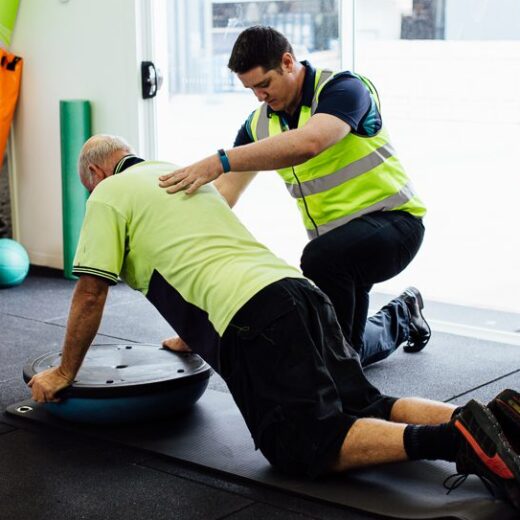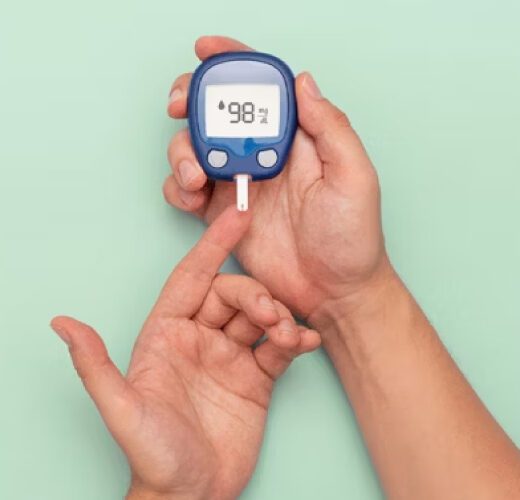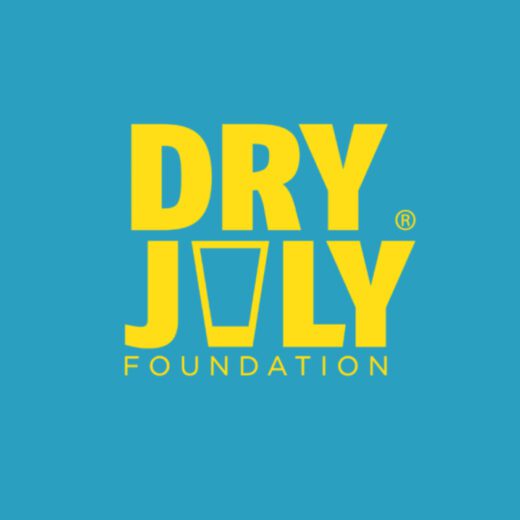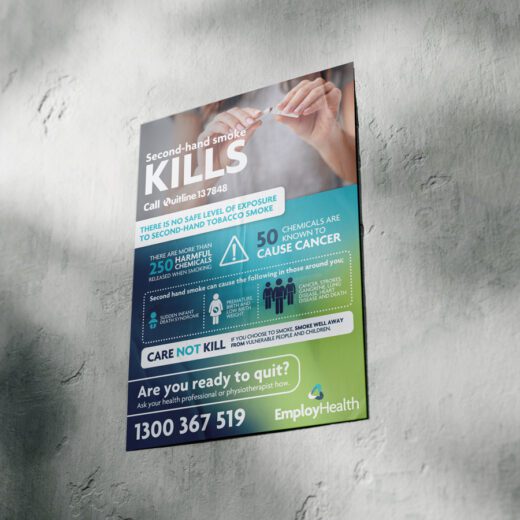
Mid-Year Health Check-Ins – Fit For Life
Give your team the reset they need with onsite wellness screening The middle of the year is the perfect time to check in, not just...
Read moreWorking under direct sunlight takes a toll on the body. Heat and UV exposure can lead to fatigue, dehydration, and reduced concentration, diminishing productivity and increasing the likelihood of mistakes or accidents. Prolonged exposure without adequate protection can even lead to heat exhaustion or heat stroke, which can take workers off the job for days or longer.
When workers are uncomfortable or fatigued, it’s challenging to maintain the focus required for quality work and safe practices. This is especially relevant for industries with outdoor tasks, where a sharp mind and steady energy are essential.

Australia has one of the highest rates of skin cancer in the world, with over 2,000 Australians dying from the disease each year. Outdoor workers are at heightened risk, receiving up to ten times more UV exposure than indoor workers. The consequences are not just personal – they affect families, communities, and businesses.
Preventable yet pervasive, skin cancer highlights the need for proactive measures in workplace health strategies. By prioritising sun safety, businesses not only protect their teams but also contribute to long-term health outcomes.
Workplaces with outdoor teams have a duty to mitigate the risks of sun exposure. Here are some actionable strategies:
Equip workers with wide-brimmed hats, UV-blocking sunglasses, and lightweight, long-sleeved clothing designed for sun protection.
Supply SPF 30+ or higher sunscreen at all worksites and encourage regular application, particularly during peak UV hours.
Where possible, schedule tasks in shaded areas or provide temporary shade structures. Encourage breaks in shaded, cooler environments to allow workers to recover.
Empower your team with knowledge about UV risks, the importance of hydration, and recognizing signs of heat-related illnesses.
Adjust work hours to avoid peak UV times (10 a.m.–3 p.m.), where feasible. Early morning or late afternoon shifts can dramatically reduce exposure risks.
When management prioritises sun safety, the benefits extend beyond the health of individual workers:
Healthy, comfortable workers perform better and with fewer disruptions.
Preventing heat stress and sun-related illnesses keeps workers on the job.
A visible commitment to worker wellbeing builds trust with your team and your clients.
Meeting and exceeding workplace safety standards reduces the likelihood of fines or legal action.
Taking sun safety seriously is an investment in your team’s health, your business’s efficiency, and Australia’s collective wellbeing. By implementing proactive strategies and fostering a culture of care, you not only protect your workers but set a powerful example for workplace leadership.
Sun safety is more than a seasonal concern—it’s a year-round opportunity to safeguard your workforce and drive better outcomes for your business. Let’s make this summer a safe and productive one for all.

Give your team the reset they need with onsite wellness screening The middle of the year is the perfect time to check in, not just...
Read more
Why regular training is key to a safer, stronger workforce Manual handling injuries are one of the most common—and preventable—workplace hazards in Australia. Whether your...
Read more
How employers can support prevention, early detection, and healthier teams Diabetes is one of Australia’s fastest-growing chronic health conditions, and its impact reaches well into...
Read more
Every July, thousands of Australians take a break from alcohol to raise funds for people affected by cancer. But Dry July isn’t just a...
Read more
Safeguarding sensitive workplace data is no longer optional, it is essential. With cyber threats on the rise and regulatory changes looming, Australian businesses must...
Read more
Navigating the Rising Threat Landscape In today’s digital age, data security has become a paramount concern for Australian businesses. The increasing frequency and sophistication of...
Read more
What They Are and How to Manage Them in Your Workplace Mental health and wellbeing have become essential conversations in modern workplaces – not just...
Read more
Ways Your Business Can Make a Difference This June June is Women’s Health Month, a time to recognise, celebrate, and support the health and wellbeing...
Read more
May is Addiction Awareness Month—a time to shine a light on the habits and dependencies that affect the health, wellbeing, and performance of workers...
Read more
Manual handling is a part of everyday work across countless industries – from construction and warehousing to healthcare and hospitality. But it’s also one...
Read more
Drug and alcohol use in the workplace is more than just a safety issue—it’s a health, productivity, and culture concern. Having a structured workplace...
Read more
Quitting smoking is one of the most impactful health decisions a person can make—but it’s not easy to do alone. As a business, the...
Read moreCan’t find what you’re after?
View all articles